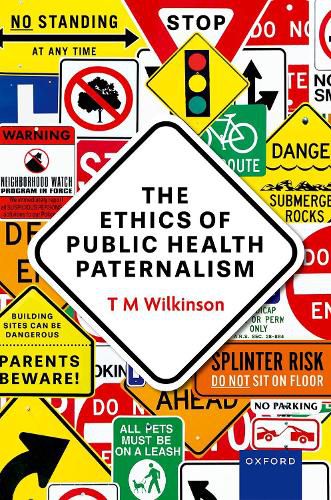The Ethics of Public Health Paternalism
T M Wilkinson

The Ethics of Public Health Paternalism
T M Wilkinson
This is an open access title available under the terms of a CC BY-NC-ND 4.0 International licence. It is free to read on the Oxford Academic platform and offered as a free PDF download from OUP and selected open access locations.The Ethics of Public Health Paternalism is about policies that try to stop people damaging their own health. From the point of view of public health advocates, if people did not smoke, or drank less alcohol, or kept off junk food and sugary liquids, they would tend to be healthier. Hence such tactics as taxing tobacco, restricting the sale of alcohol, and limiting the density of fast-food outlets. Because these tactics appear to limit freedom of choice, they are often pejoratively described as the actions of a 'nanny state' that overvalues health and wrongly infringes on the autonomy of adults. But many of us want to be healthy rather than ill, and alive rather than dead. Does a state really nanny us when it uses its power to make us healthier? If it does, should it stop?Some public health policies might reduce inequities of health, or save costs in medical treatment, or correct market failures. But, as this book shows, lots would not. The best case for many public health interventions is paternalistic, aiming to steer people away from making unhealthy choices against their own interests. But even though it is the best case, it often fails. It overvalues health and undervalues autonomy. It exaggerates the influence of addiction and the marketing of unhealthy products. Except for smoking, we do not have the evidence needed to show that unhealthy choices are so mistaken as to justify the interventions. Much of what modern public health does, when it tries to stop adults damaging their health, has not been justified. The Ethics of Public Health Paternalism applies political and moral philosophy to the ideas of both supporters and critics of public health interventions. It uses philosophical analysis of the values of health and well-being to explain what sort of evidence is needed to support public health interventions, thus exposing a major gap in the arguments of public health advocates, and it engages in detail with empirical evidence, for instance about smokers' regrets.
Order online and we’ll ship when available (1 May 2025)
Our stock data is updated periodically, and availability may change throughout the day for in-demand items. Please call the relevant shop for the most current stock information. Prices are subject to change without notice.
Sign in or become a Readings Member to add this title to a wishlist.


